Debunking 10 Common Myths About Raccoons
Raccoons are curious, clever, and occasionally caught red-handed in your trash bin. These masked bandits have quite the reputation, but not all of it is deserved. As a matter of fact, raccoons have had their fair share of bad PR. Let’s debunk some of the most common myths about these fascinating critters and give them a little credit where it’s due.
Myth: Raccoons Are Strictly Nocturnal
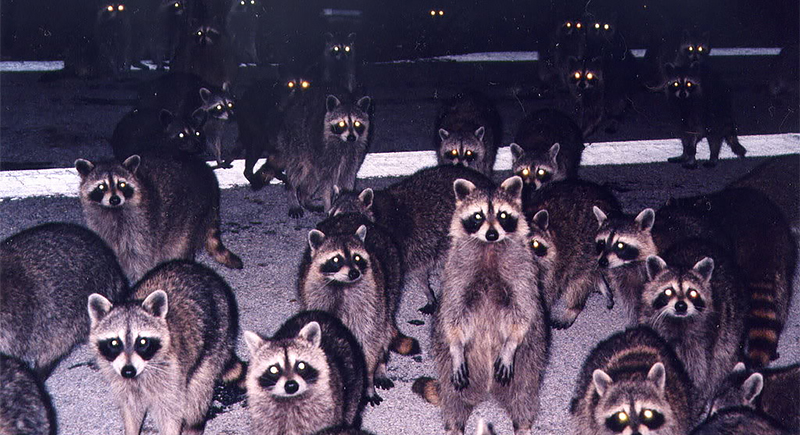
Credit: Reddit
It’s true raccoons are most active under the cover of darkness, but spotting one during the day doesn’t mean something’s wrong. Like us, their schedules can shift depending on food availability, weather, or even a new family to feed. So, a daytime raccoon isn’t necessarily sick or dangerous—it’s just a creature of opportunity.
Myth: Raccoons Eat Cats
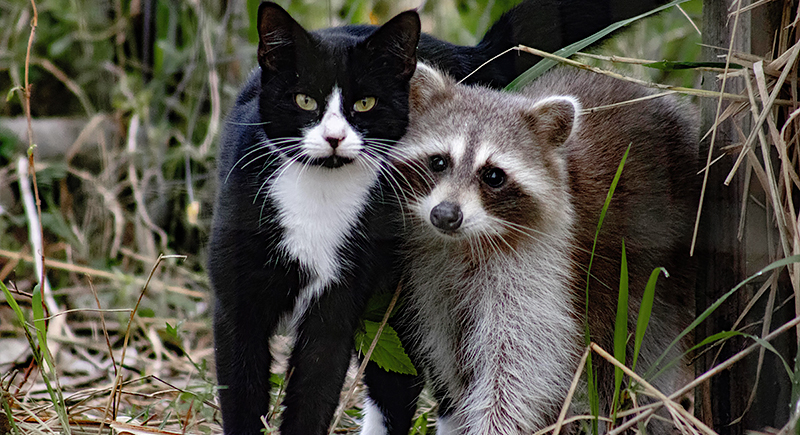
Credit: Reddit
Despite popular belief, raccoons are not prowling your backyard for feline snacks. Their diet leans toward fruits, nuts, insects, and small critters like frogs or crayfish. While they might defend themselves if cornered, they’re not out to harm your furry friends. Most conflicts arise over shared food sources, not predator-prey dynamics.
Myth: All Raccoons Carry Rabies
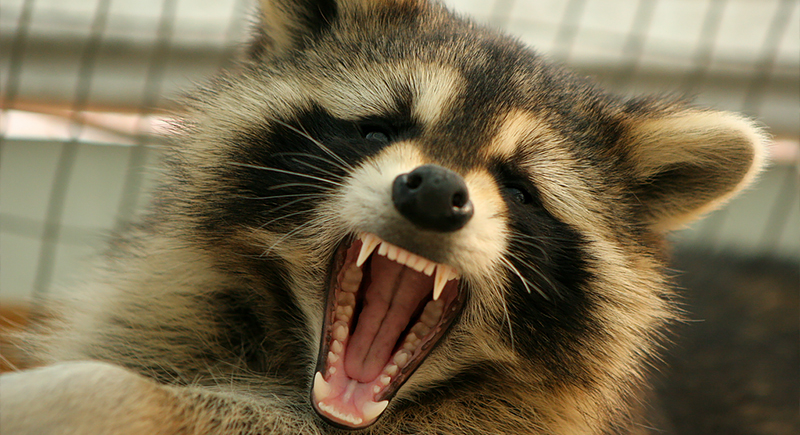
Credit: flickr
Yes, like dogs, raccoons can carry rabies, but not every raccoon is infected. Rabies cases in raccoons are relatively rare, though it’s always wise to avoid direct contact. If you see a raccoon acting strangely—staggering, foaming, or being unusually aggressive—it’s best to notify local wildlife authorities.
Myth: Raccoons Are Dirty Animals
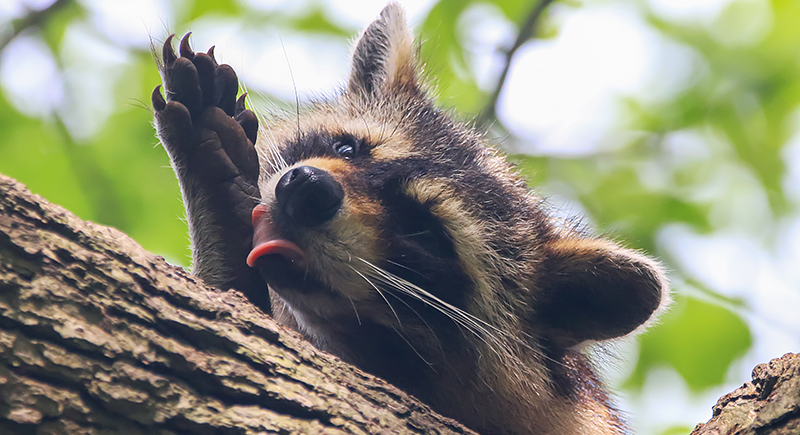
Credit: iStockphoto
Raccoons might get a bad rap for rummaging through trash, but they’re surprisingly meticulous groomers. They spend a good chunk of time cleaning their fur, which helps them stay free of parasites. When raccoons live in groups, mutual grooming is a common activity, which helps reinforce connections within their social circle.
Myth: Raccoons Hibernate in Winter
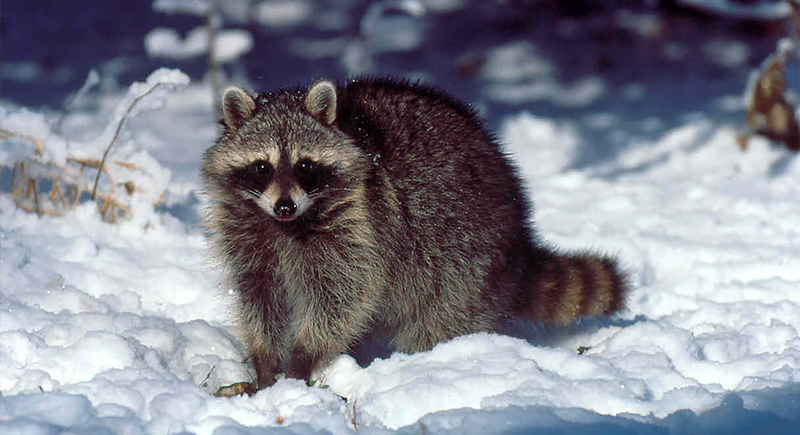
Credit: flickr
Unlike bears, raccoons don’t hibernate. Instead, they enter a lighter state of inactivity called torpor when temperatures drop. During these periods, they rely on fat reserves built up in the warmer months and venture out only when conditions allow.
Myth: Raccoons Wash Their Food
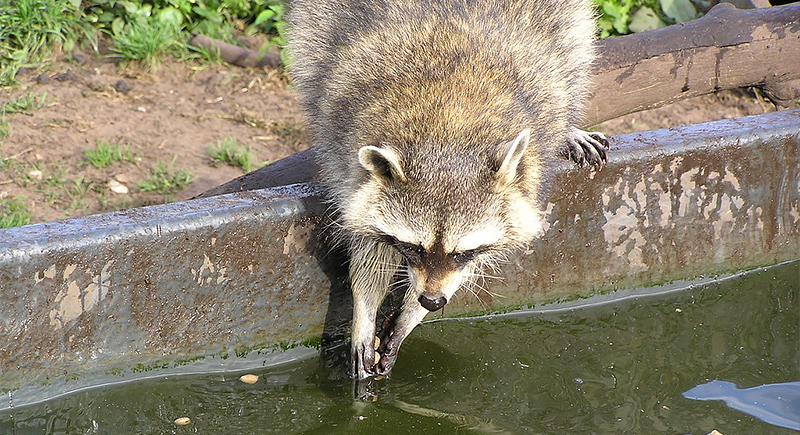
Credit: flickr
Let’s clear up this classic misconception. When raccoons are seen dipping food into water, they’re not cleaning it. This behavior, called dousing, is thought to sharpen their sense of touch, which is highly developed. It’s their way of enhancing their tactile senses to better identify their meal. For raccoons, those nimble paws are just as important as their keen eyesight.
Myth: Raccoons Are Rats
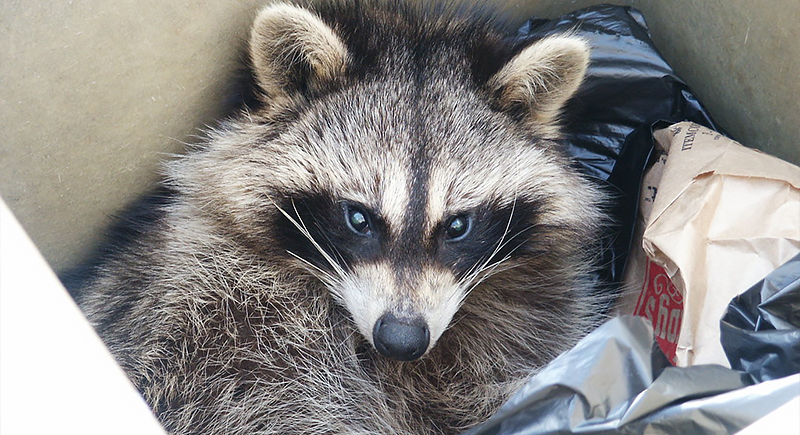
Credit: flickr
Raccoons are not oversized, fluffy-tailed rats. Yes, they both enjoy scoping out your leftovers, but raccoons are part of the Procyonidae family, not the rodent clan. They’re more closely related to red pandas than rats. So, while their scavenging habits might land them in the same “pest” category for some, raccoons are completely different (and arguably cuter) animals.
Myth: Raccoons Make Good Pets
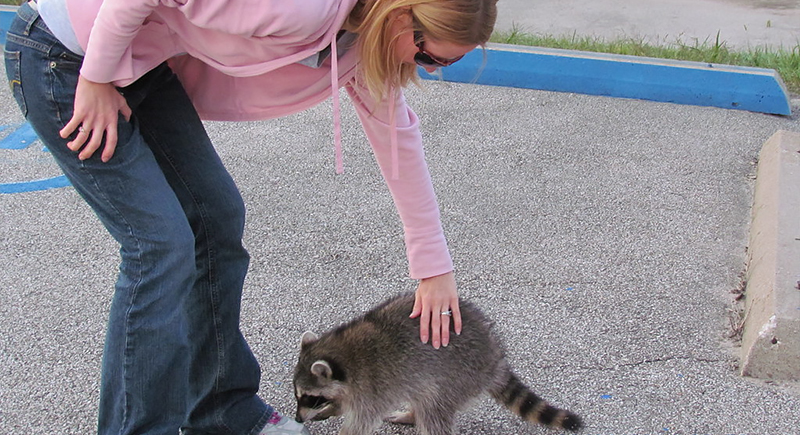
Credit: flickr
Sure, they’re cute and undeniably intelligent, but raccoons are wild animals at heart. Their needs go far beyond what most people can provide, and their behavior can shift dramatically, especially during mating season. In many places, keeping raccoons as pets is illegal, and for good reason—it’s a situation that rarely benefits either the raccoon or the owner.
Myth: Raccoons Are Aggressive and Dangerous
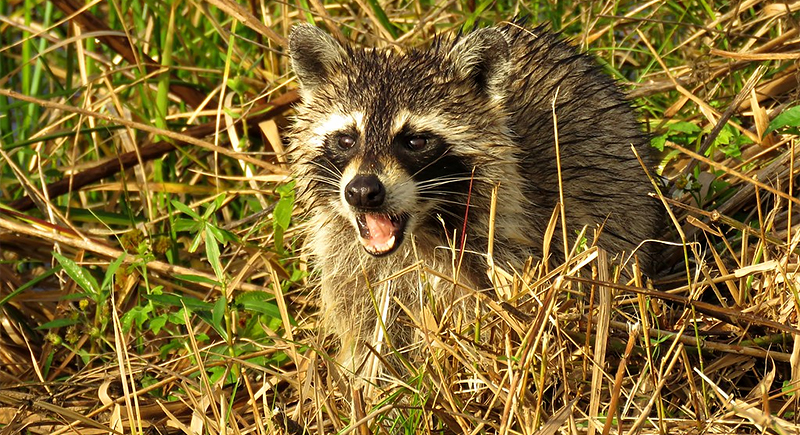
Credit: flickr
Raccoons are naturally cautious and prefer avoiding conflict. If they seem aggressive, it’s usually a last resort when they feel trapped or threatened. Mothers protecting their young can be particularly defensive, but most raccoons will retreat if given the chance.
Myth: Raccoons Don’t Have Salivary Glands
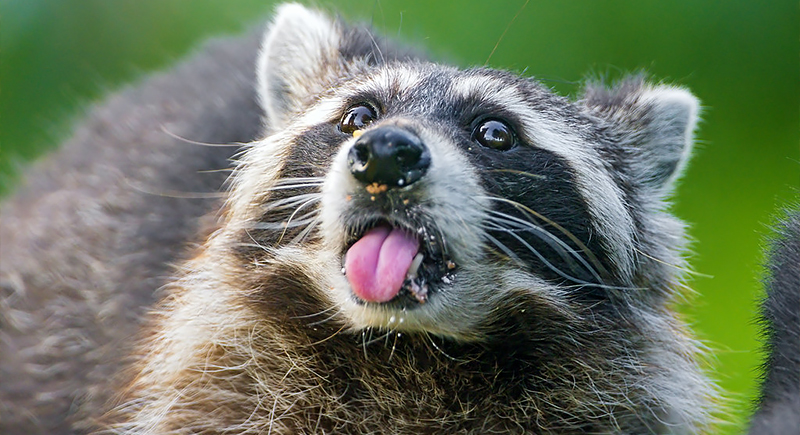
Credit: flickr
This myth probably stems from their habit of dipping food in water, but let’s set the record straight—raccoons absolutely have salivary glands. These glands function like those of any other mammal and help with digestion and keeping their mouths healthy.
Myth: Raccoons Enjoy Being Hunted
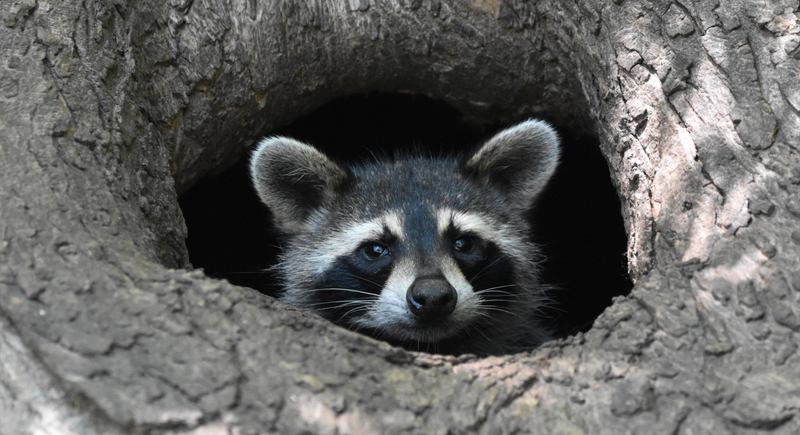
Credit: iStockphoto
The idea that raccoons participate in or enjoy hunting scenarios is pure anthropomorphism. Raccoons, like all animals, have an instinct to survive. They don’t view being hunted as sport, and any behavior interpreted that way is simply their survival instinct kicking in.
Myth: Raccoons Serve No Purpose
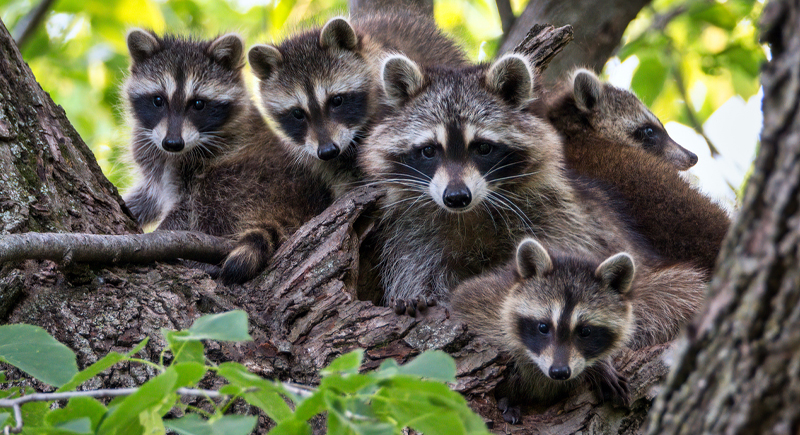
Credit: iStockphoto
It’s easy to dismiss raccoons as pests when they raid your trash cans, but they’re more than nuisances. By eating insects, small rodents, and even dead animals, raccoons help maintain a healthy ecosystem. Their foraging also aids in seed dispersal, which helps plants grow in new areas.
Myth: Raccoons Are Solitary Animals
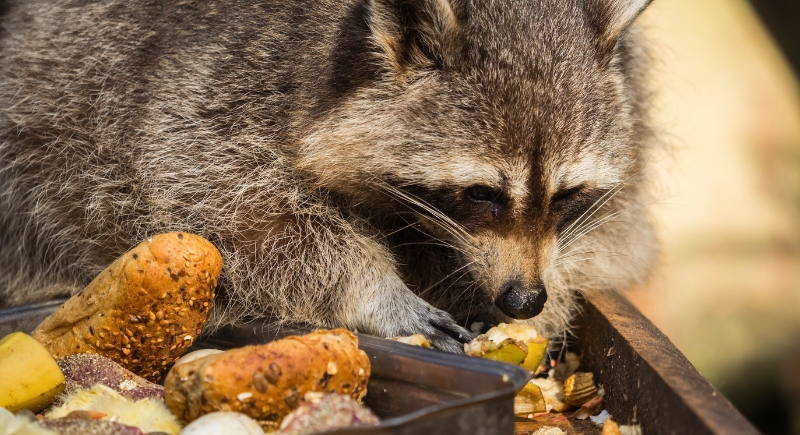
Credit: Getty Images
Raccoons often search for food on their own, but they aren’t completely solitary. In colder areas, males sometimes share dens through winter to stay warm and avoid predators. Females may use nearby territories or even share a den for short periods, though they typically raise their young alone.
Myth: Raccoons Have Poor Memories
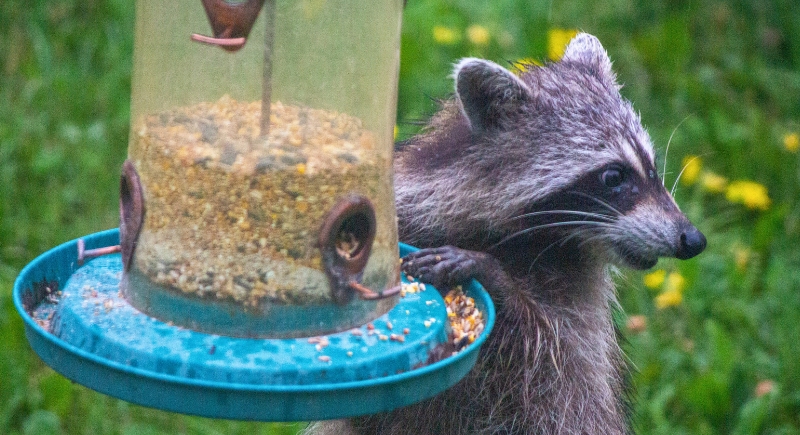
Credit: Getty Images
Raccoons are smarter than they look. Some studies have shown that they can remember puzzle solutions for months and quickly apply those lessons to new challenges. This strong memory helps them adapt to changing environments and find food in both the wild and urban areas.